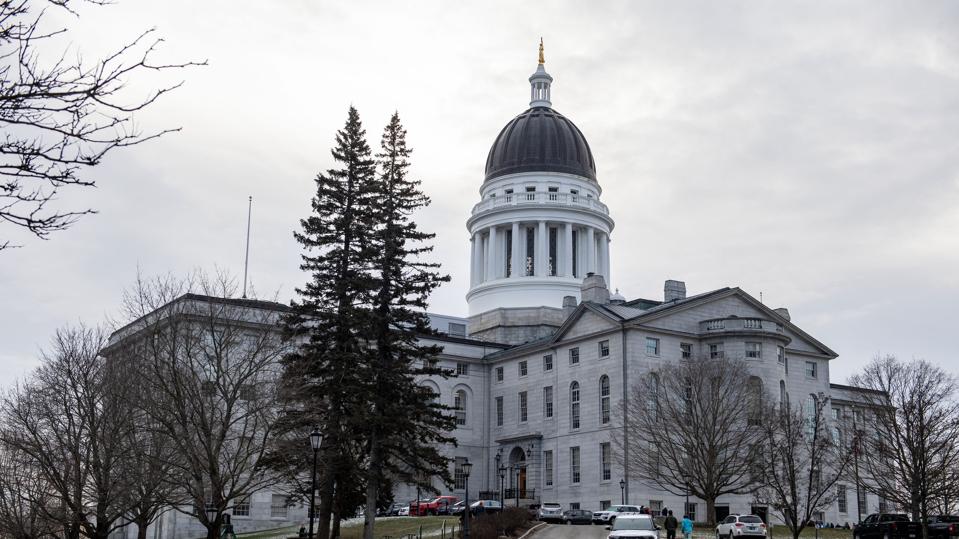Topline
A pair of Republican state representatives in Maine apologized Thursday after claiming last year’s mass shooting in Lewiston, Maine, that left 18 people dead was the wrath of God for pro-abortion rights legislation, after the two Republicans were threatened with censorship from House leadership over their comments.
Key Facts
State Reps. Michael Lemelin and Shelley Rudnicki issued public apologies at the state House in Augusta on Thursday, with Lemelin saying he “accepts full responsibility for” his comments.
Both representatives addressed their apologies to their colleagues in the state House and to “the people connected to the horrible events on Oct. 25 and to the state of Maine.”
Rudnicki—who represents the towns of Benton and Fairfield—and Lemelin, who represents four towns in Kennebec and Lincoln counties, made those comments on the House floor Wednesday night, addressing a bill signed into law last July that gave abortion providers leeway to determine when an abortion is necessary.
In his speech, Lemelin said “there would be five consequences” to that bill passing, alluding to “four storms that wreaked havoc on Maine,” and saying that when the bill went into law, its supporters “told God ‘life doesn’t matter.’”
“God heard you and the horrible events on Oct. 25 happened,” he finished, referencing the pair of shootings carried out at a restaurant and a bowling alley in Lewiston that left 18 people dead and 13 injured.
Rudnicki followed Lemelin on the floor, saying she agreed with him “and everything he said.”
Crucial Quote
Both Lemelin and Rudnicki drew sharp condemnation for their comments, with Democratic state Rep. Kristin Cloutier calling their remarks “as asinine as they are reprehensible,” adding: “We are dismayed by this stunning lack of respect, deeply troubling absence of empathy and infuriating disregard for the victims, their families and everyone in our community whose hearts remain shattered by this horrific act of senseless violence.”
Key Background
Police in Maine identified National Guard firearms instructor Robert Card as a person of interest after the shootings, saying he should be “considered armed and dangerous,” leading to a manhunt in southern Maine for the 40-year-old man believed to have carried out the most deadly shootings in state history. Police said Card killed seven people at the Sparetime Recreation bowling alley and eight more at Schemengees Bar & Grille Restaurant down the street, with three more victims later pronounced dead. Card was found dead less than a week later. Details slowly began to emerge about Card’s mental state in the aftermath of the shooting, with his sister-in-law Katie Card telling police that Robert Card was experiencing an “acute” mental health episode ahead of the shooting. Police reports later revealed local authorities and military officials had been warned about Card before the shooting, while Card’s teenage son previously urged a reservist to change the password at the National Guard unit gate, The Boston Globe reported.
Tangent
Rudnicki and Lemelin’s comments come nearly two years after the Supreme Court’s overturning of Roe v. Wade, a momentous decision overruling 50 years of federal protection for abortion, and leaving women’s access to the procedure a matter to be decided by individual states. Since that ruling, 21 states have implemented bans at varying levels, with some banning nearly all abortions, and some restricting them at six, 12, 15 or 18 weeks into a pregnancy. In the past month, Florida’s Supreme Court upheld an abortion ban at 15 weeks, a ruling that also allows a stricter ban at six weeks to go into effect in May. Arizona’s Supreme Court this week reinstated an 1864 law making it a felony to perform an abortion in the state, though the law faces an uncertain future with Democratic state Attorney General Kris Mayes saying she will refuse to prosecute abortion providers.

